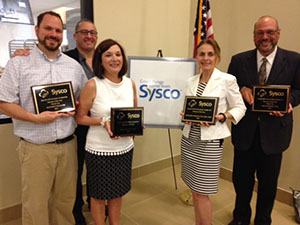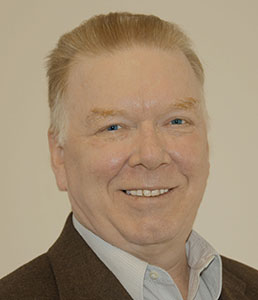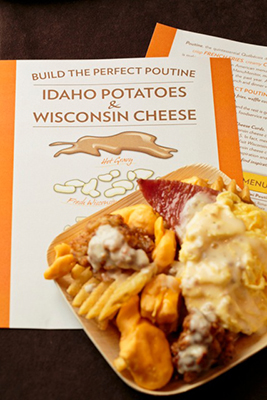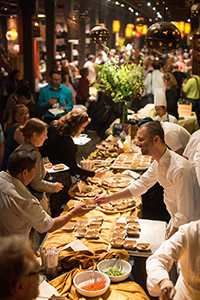CAFÉ and Sysco Corporation Announce 2015 Educators of the Year
Wednesday, 08 July 2015 03:00
 In the award program’s inaugural year, two secondary and two postsecondary educators earned recognition for distinction in training professional cooks of tomorrow at the 11th-annual CAFÉ Leadership Conference in June.
In the award program’s inaugural year, two secondary and two postsecondary educators earned recognition for distinction in training professional cooks of tomorrow at the 11th-annual CAFÉ Leadership Conference in June.
Sysco, the world’s leading foodservice distributor, recognized four foodservice educators in the 2015 CAFÉ/Sysco Corporation Educator of the Year Awards at the 11th-annual Leadership Conference of the Center for the Advancement of Foodservice Education (CAFÉ), June 18 in Niagara Falls, N.Y.
“In our first year of supporting this new annual award that acknowledges the tremendous industry contributions of foodservice instructors throughout the United States, we were introduced to many genuinely gifted teachers,” says Neil Doherty, CEC, Sysco’s senior director of culinary development.
“All of them submitted amazing endorsements from their administrators, program and industry colleagues and former and current students—making the selection of only two award recipients and two runners-up from both high-school and college-level training programs extremely difficult. In the end, thanks to their extraordinary career accomplishments, four individuals stood out.” They are:

 Real information power comes when operators begin to consolidate and review all their data, to reveal the complete picture they need to make better business decisions.
Real information power comes when operators begin to consolidate and review all their data, to reveal the complete picture they need to make better business decisions.
 For 17 years, Worlds of Flavor in Napa Valley has been considered by the industry to be America’s most influential professional forum on world cuisines, food cultures and flavor trends. This year’s event didn’t disappoint.
For 17 years, Worlds of Flavor in Napa Valley has been considered by the industry to be America’s most influential professional forum on world cuisines, food cultures and flavor trends. This year’s event didn’t disappoint.